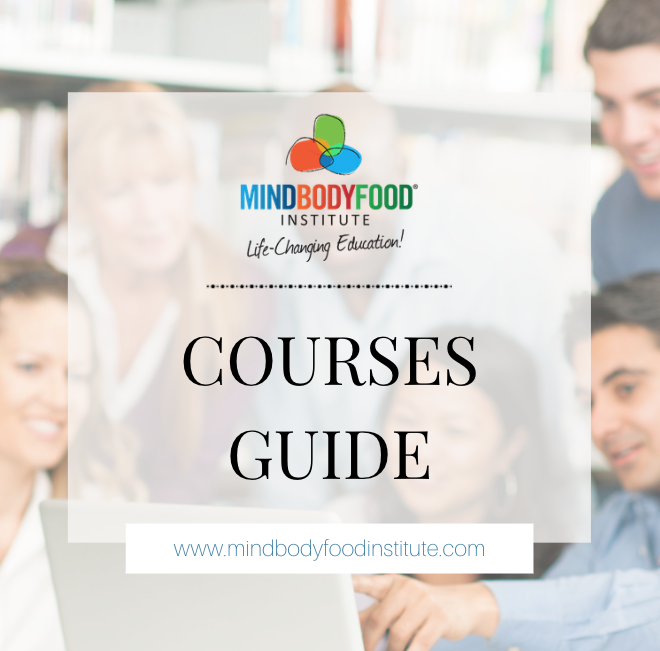Almost a year ago, I developed lower back pain. At first I thought I had pulled a muscle ducking under a tree branch while out running with a friend.
I took it easy for a few days and the pain seemed to subside. But then it came back, and with a vengeance. It remained with me on and off for a year and was often so severe that I had to hold onto pieces of furniture to support myself when rising from a chair or my bed, or when brushing my teeth.
I’m a runner and, when my pain first appeared, I was training for my first 50km ultra run. Thankfully I was able to complete this, and felt no pain during that special day (this became a very important piece of ‘evidence’ for me to refer back to once I began my healing journey).
Thereafter, the pain became more permanent and, like most people, I followed the traditional medical model of treatment: Xrays, MRIs, osteopaths, chiropractors and physiotherapists, but nobody was able to ‘heal’ me. It was only later on that I realised I was capable of healing myself.
I often left an appointment feeling worse than I’d felt going in. Each practitioner offered me a new nugget of negativity: I was diagnosed with hip arthritis, disc generation, flat back syndrome, lumbar sciatica, convex left inflection, discopathy of L4-L5 and L5-S1 with a trapped nerve and a 9mm pelvic imbalance, meaning that sexy wiggle wasn’t so sexy after all!
It all sounded pretty scary, and I’ll admit to shedding tears in my car on a few occasions. I was advised to stop running by everyone I encountered, including my aerobics teacher at my once-weekly class. For a while, I listened to them. They were the experts after all, weren’t they?
Then I got fed up of not being able to run. After running for twenty years, I felt it had become part of my identity and who I was. It was a form of stress relief, gave me a sense of freedom and empowerment, was my only social activity and made me feel strong and motivated to cope with life’s challenges. Besides I didn’t suffer symptoms whilst I was running, something that should have been a significant clue that the cause wasn’t a physical one.
Acute Pain or Chronic Pain?
The body naturally heals tears, breaks and other musculoskeletal injuries in around 12 weeks or 3 months. After this point, what started as acute pain becomes what is termed ‘chronic pain’. It was frightening for me to identify with this category. I later discovered how fear would fuel the pain fire.
A Book That Would Change My Life
After months of desperately searching for someone to ‘fix’ me, feeling frustrated and close to desperation, I came across a podcast that mentioned a book, credited with healing someone of their lower back pain. It was called, Healing Back Pain by Dr. John Sarno, Professor of Rehabilitation Medicine at the New York University School of Medicine and attending physician at the New York University Medical Center. I was filled with hope for the first time in months.
I read the book, and although I didn’t have a ‘book cure’ as some people have claimed to have experienced, Dr Sarno’s words completely resonated with me, and I saw myself on every page.
Dr Sarno explained that the terrible terms I had been diagnosed with were part of the normal ageing process. They were what he termed ‘normal abnormalities’. It shocked me to learn that the spine degenerates from the age of 20 and that if anyone my age (I’m 46) were to have an Xray or MRI they would almost certainly be found to have some form of degeneration in their spine too.
The fact that these ‘normal abnormalities’ could be present in the body without causing any pain was a revelation to me! This discovery became an important part of my journey towards becoming pain free.
The second impactful discovery for me was the notion that certain personality traits made it more likely for some people to suffer from chronic pain.
According to Steve Ozanich, in his book ‘The Great Pain Deception’, there is a Type-T personality. The T stands for Tension and is taken from ‘Tension Myositis Syndrome’ (TMS), also known as tension myoneural syndrome or mind body syndrome – the name given by Dr. John Sarno to the numerous psychosomatic (relating to the interaction of mind and body) musculoskeletal and nerve symptoms and conditions, most notably back pain, but also tendonitis, fibromyalgia, plantar fasciitis, coccydynia (pain in the coccyx), gastric conditions, neck and shoulder pain and carpal tunnel syndrome.
Type-T personality traits
- Perfectionism – Does every project or task you undertake need to be perfect and do you ignore your own needs and feelings to accomplish a task?
- Goodism/People-pleasing – Do you put the needs and desires of others before your own? Do you play peacemaker in a dispute and do you keep your thoughts to yourself, even if you disagree strongly with someone?
- Legalist – Unlike perfectionists who seek to do the right thing, legalists seek to be right. Responsibility and upholding their commitments are common among legalists. Legalists also hold themselves to extremely high standards that can breed feelings of unworthiness and self-hatred.
- Stoic – Do you find it awkward or difficult to express your emotions? If people saw you express your emotions, do you think they would think of you negatively?
- Anxiety and Fear – Do you think that if you are honest with people they will reject you? When your family members go somewhere, do you worry that something terrible might happen to them?
- Low Self-Esteem – Do you feel that other people know more than you or are usually better at things than you are? Do you question your ability to do things?
- Hostility and Aggression – Do you sometimes overreact to an issue or event or do you place your frustration onto something less severe and less difficult to talk about than an underlying issue? Do you have deep issues you avoid discussing that are associated with fear or shame?
- Dependency – When making plans do you prefer if other people take the lead? People with this trait often choose careers that have security yet lack any sense of challenge or reward.
(Source: TMS Wiki site https://www.tmswiki.org/ppd/TMS_Personality_Traits)
If you can relate to the above character traits, there is a strong chance you are repressing your true feelings, and that the subconscious resentment you have over this will be felt in the body as ‘pain’.
This was a turning point for me, as I realised that the pain I was experiencing was merely a very natural way of my body telling me ‘you’re repressing your feelings to please other people and I’m trying to let you know’.
According to the famous 13th century Persian poet Rumi: “These pains you feel are messengers. Listen to them”
For the first time for a very long time I started to ask myself what I was really feeling and what I wasn’t allowing to surface. It was this repression of my emotions that was causing my body to remain in a stressed, over-adrenalized, anxious state.
The brain cannot distinguish between a real threat and a perceived threat, and my own unexpressed thoughts, desires and fears were manifesting as chronic pain in my body.
I needed to learn how to turn off this stress response….
(Read Part 2 – How To Turn Off The Stress Response & Reduce Chronic Pain)
Featured image by Anthony Tran on Unsplash.
Author:
Catherine
Catherine McDonnell is a trained and certified, Holistic Life Coach and Mind Body Practitioner. She coaches, writes and teaches clients how to use the mind-body connection to address their chronic pain.
DOWNLOAD OUR COURSES GUIDE
Learn More About Our Course Offerings and Discover Which New Wellbeing Career Best Suits Your Passion!








